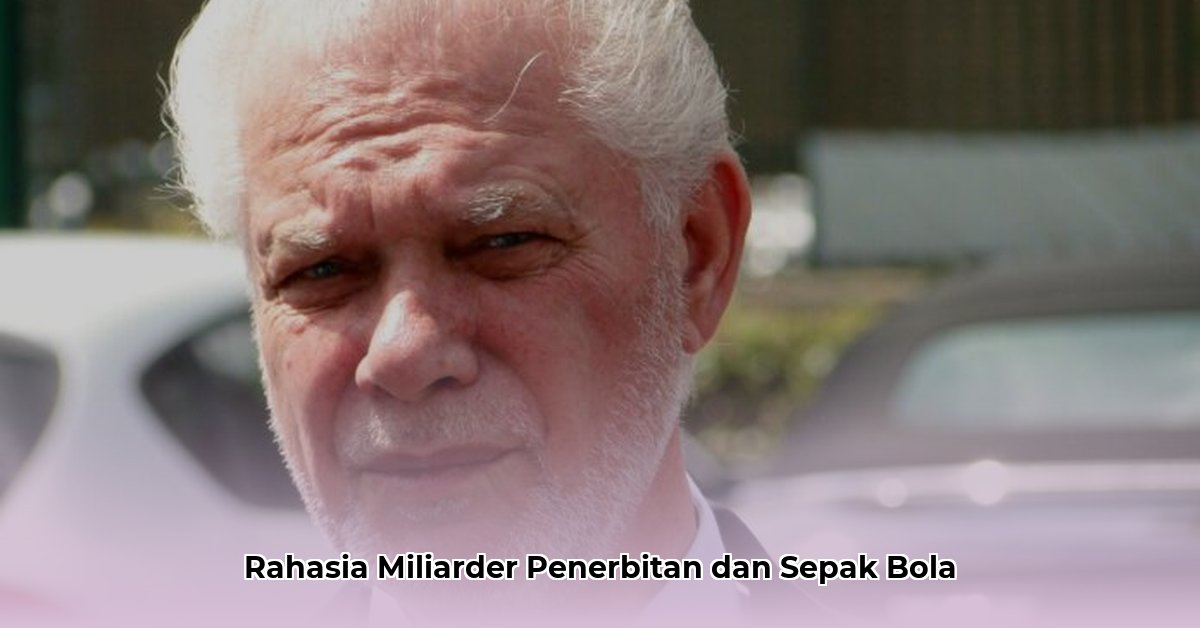
David Gold: A Business Tycoon with a £500 Million Fortune
David Gold, a self-made millionaire, built a business empire worth an estimated £500 million (2020 estimate). From publishing to football ownership, Gold’s entrepreneurial spirit shaped his remarkable wealth.
From Newspaper Vendor to Retail Giant
Gold’s journey began with Gold Star Publications and Sport Newspapers. These ventures laid the foundation for his success, but it was his acquisition of Ann Summers and Knickerbox that truly boosted his fortune. These lingerie brands became household names and significantly contributed to his wealth.
Football Passion and West Ham Legacy
Gold’s love for football didn’t end at being a proud West Ham fan. He became co-chairman of the club in 2010 and played a key role in its success for over a decade. His passion extended beyond the pitch, as he actively supported local charities and invested in the club’s facilities.
Personal Life and Challenges
Gold’s life wasn’t only about business success. Like many, he faced personal challenges. While his business ventures flourished, his personal life took a different turn with a divorce and the tragic loss of his wife in 1972.
Legacy and Inspiration
Despite these obstacles, Gold’s resilience and determination shone through. His dedication to both business and football left a lasting impact. Gold’s journey from humble beginnings to becoming a multi-millionaire serves as a testament to the power of hard work and perseverance. His success inspires aspiring entrepreneurs to dream big and pursue their passions relentlessly.
Gold’s Business Ventures and Wealth Accumulation
Gold’s business ventures in media, entertainment, and retail laid the foundation for his wealth. His investments in West Ham United further increased his net worth. However, it was his passion for football and his commitment to giving back to the community that truly defined him.
Football and Philanthropy
Gold’s love of football played a significant role in his financial success. He became a co-chairman of West Ham United in 2010 and guided the club through a period of growth. His investment in the team and his role in the move to the London Stadium solidified his place in West Ham history.
Beyond business, Gold was known for his generous nature. He supported local communities through various charities and made large donations to God’s Temple in Jerusalem. His philanthropic efforts extended to the Jewish community and other worthy causes.
Gold’s Legacy and Impact on West Ham United
Gold’s influence on West Ham United’s journey to financial stability and competitive success cannot be understated. As the club’s co-chairman for over a decade, his astute business acumen and passion for football played a crucial role in West Ham’s remarkable transformation.
Gold’s Acquisition: A Pivotal Moment
In 2010, David Gold’s acquisition of West Ham United marked a significant turning point. His financial backing brought much-needed stability to a club struggling with debt and operational challenges. Gold’s business expertise helped implement efficient practices, reducing the club’s financial burden and laying the foundation for future success.
London Stadium: A Visionary Decision
Gold’s strategic vision was evident in West Ham’s move to the London Stadium in 2016. This bold decision secured the club’s long-term future, increasing revenue streams and providing a state-of-the-art home for its fans. The stadium’s modern amenities and increased capacity have positioned West Ham among the elite clubs in the league.
Fan Engagement: Building a Strong Bond
Beyond his business contributions, Gold was a fervent supporter of West Ham United. His commitment to fan engagement fostered a close relationship between the club and its loyal fan base. Gold regularly interacted with supporters, listened to their feedback, and implemented initiatives to enhance their match-day experience. This unwavering connection has created a strong sense of community within the West Ham family.
Gold’s Legacy Lives On
David Gold’s impact on West Ham United transcends his physical presence. He instilled a culture of financial responsibility, fan-centricity, and competitive spirit within the club. His legacy continues to inspire the organization, with various initiatives and tributes honoring his memory and ensuring his influence remains a driving force in West Ham’s future.